By Julia Huse, Contributing Writer, Classical Wisdom Limited
Of the monsters and mythological creatures Odysseus encounters during his long voyage from Troy to Ithaca, among the fiercest are female. Three of these are Circe, the Sirens and Calypso, who all prove to be difficult and terrifying obstacles to Odysseus’ journey home.
The Witch Circe
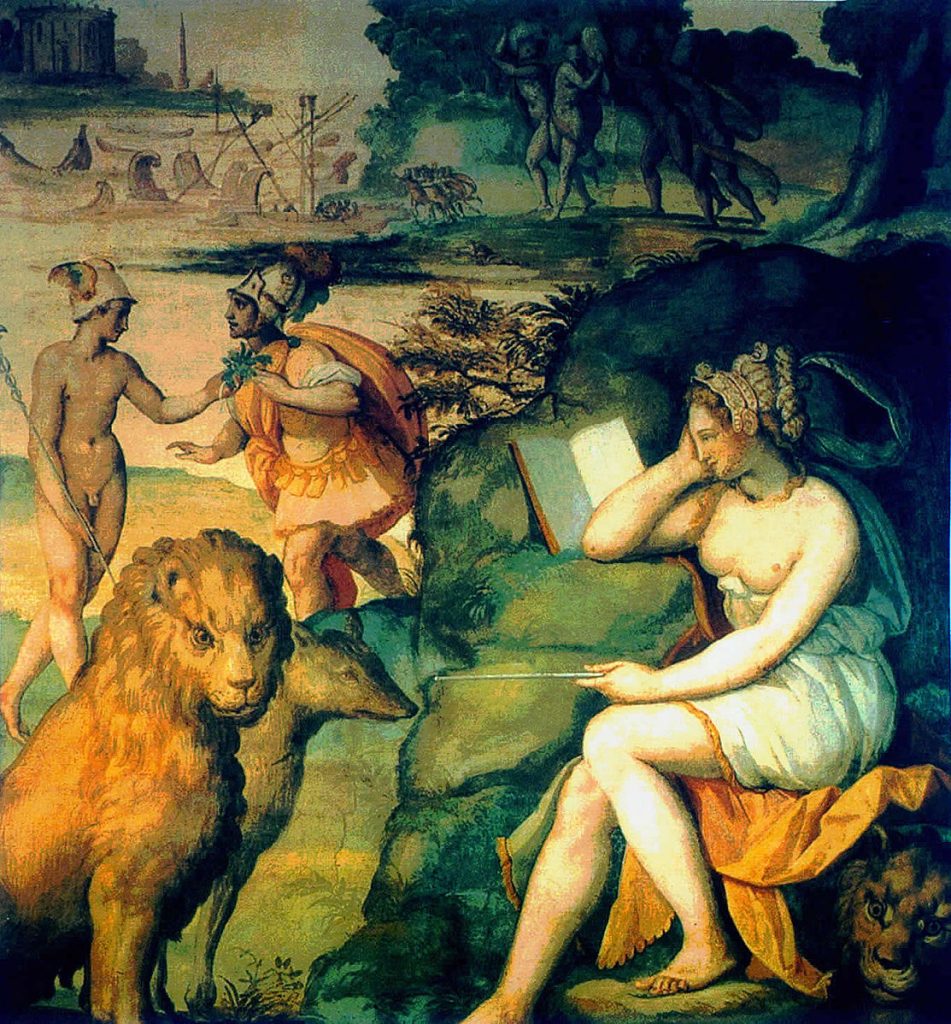
The witch Circe poisons Odysseus’ men, Alessandro Allori, 1580
After escaping the island of the cannibalistic Laestrygonians, Odysseus and his crew stumbleupon Aeaea and the home of Circe, who is referred to as both a witch and a nymph. She has a vast knowledge of potions and herbs, which Odysseus and his crew experience first hand. Odysseus and half his crew stay behind with the ships while the others go in search of Aeaea to see what people live there. The search party comes across the home of Circe, which is described as a large house in a clearing in the middle of a thick forest. All around the house are lions and wolves, which at first frighten the crew… until they notice how docile the beasts are. It is later found out that these are the previously drugged victims of Circe and her potions. In her house Circe welcomes Odysseus’ crew as guests, feeding them a meal of cheese and honey which she has drugged, turning the crew into pigs.
All but one crewmember is changed into a pig and he manages to escape to warn Odysseus and the other half of the crew what has happened. Odysseus ventures to Circe’s house to save his men, but is stopped along the way by the god Hermes, who was sent by Athena. Hermes tells Odysseus of an herb called moly that will protect him from the potions of Circe. Immune to her potions, Odysseus acts as if he is going to attack her. Afterwards, she tries to coax Odysseus into bed with her, which he avoids, due to Hermes’ advice. Having done all this, Odysseus convinces Circe to turn his crew back into humans and free them.
The Sirens
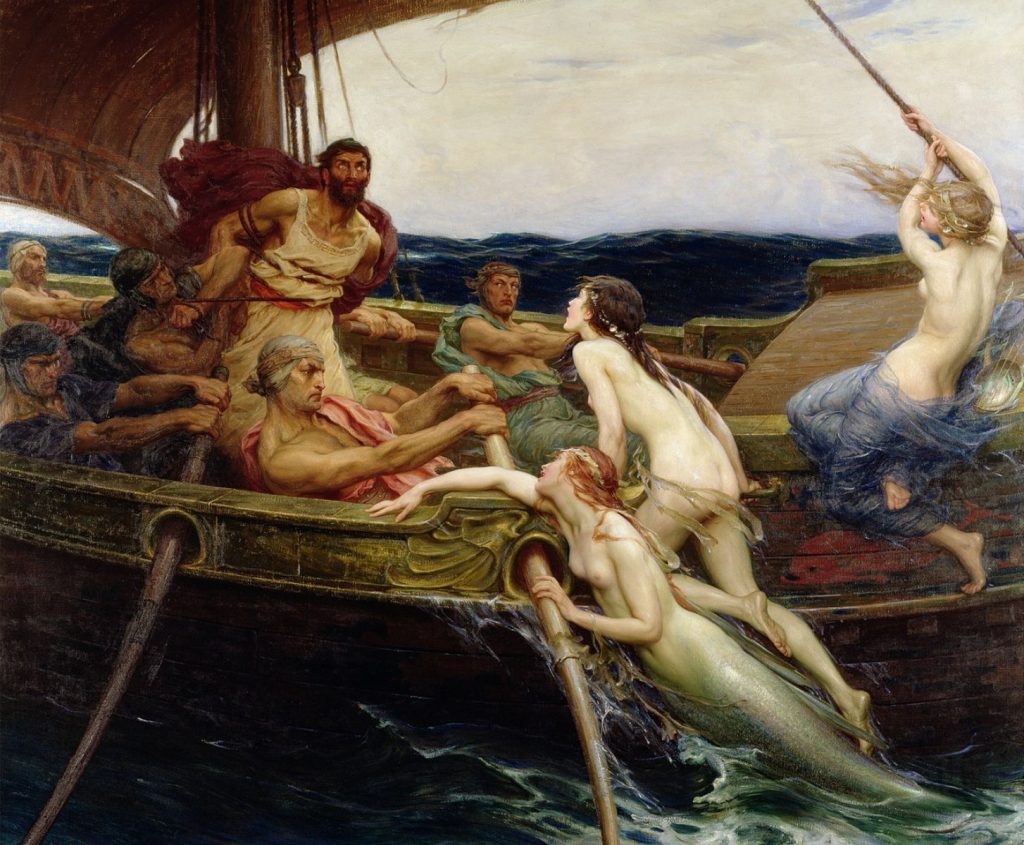
Ulysses and the Sirens, Herbert James Draper
Odysseus also encounters the famous sirens during his wanderings. Typically in Greek depictions, the sirens they are half-woman half-bird creatures that perch on the rocks by the sea and sing beautiful songs that lure men who, refusing to leave, die of starvation.
In the Odyssey, Circe warns Odysseus about the sirens and tells him to plug his and his crew’s ears with beeswax in order to block their sweet songs from entering their ears. Being curious about the songs the Sirens sing, Odysseus only plugs his crew’s ears with beeswax and then has his men tie him to the mast of the ship, instructing them not to untie him… no matter how much he begs for it. Odysseus hears the song and begs and pleads that his crew release him, but his faithful crew only tighten the ropes more, binding him to the mast.
It is then revealed that the reason the songs allure and entice men is because they sing of past and future truths. They sing to Odysseus about his past endeavors, such as the glory and suffering he endured on the battlefields of Troy, and his future actions and what he will achieve… and they falsely promise that their hearers will live to tell these truths to others. Odysseus, of course, achieves this and this is how we are able to get this account from him.
The Nymph Calypso
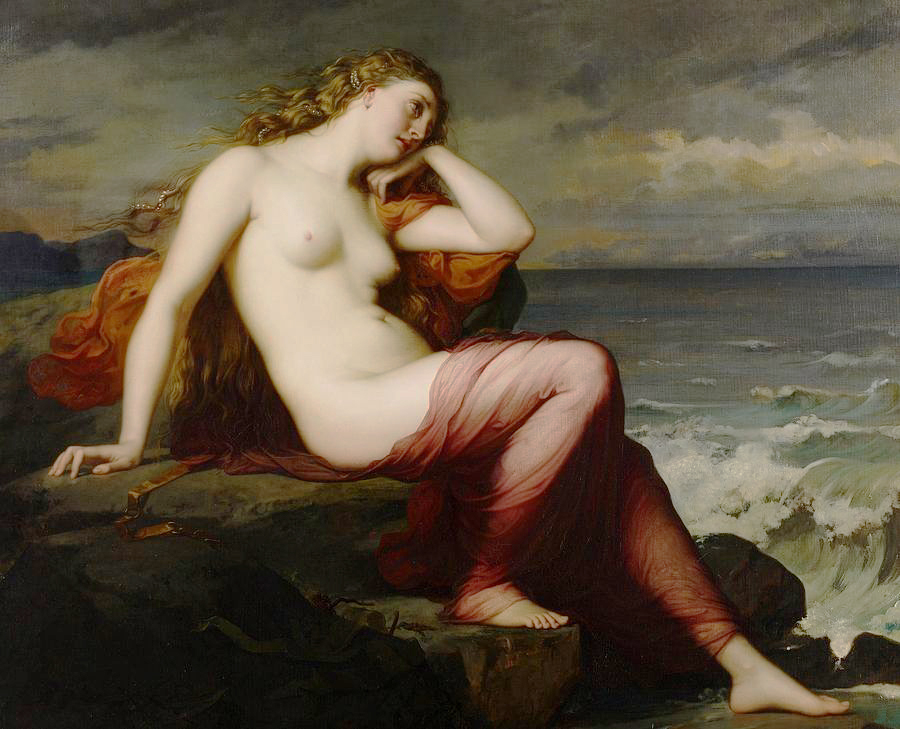
Calypso by Henri Lehmann (1869)
At the end of his wanderings Odysseus washes up alone on the island Ogygia, the omphalos, meaning navel or center, of the sea, and also the home of the nymph Calypso. Homer describes Calypso as the daughter of the Titan Atlas, who holds up the pillars of the sky and the sea. In Homer’s epic, Calypso keeps Odysseus on her island for seven years, accounting for a large part of his journey home. Calypso desires to make Odysseus her immortal husband and enchants him with her singing as she weaves on her loom. Odysseus performs all the duties of a husband for Calypso, including sleeping with her.
Even under Calypso’s spell Odysseus desires a different life. The promise of immortality does not sway him from missing his wife Penelope. Odysseus, a man, does not desire the life of a god; he much prefers the life of a mortal, even with all its hardships that are so clearly lacking on Calypso’s island. Noticing that Odysseus wants to leave the island, Athena asks Zeus to order Odysseus’ release. Zeus sends Hermes to tell Calypso to release Odysseus because it is not his fate that he should remain on the island forever anyways. Calypso eventually, and stubbornly, agrees to free Odysseus and sends him on his way with wine, bread and materials for a raft.
Beguiling Women of Ancient Greece
These women, although not necessarily terrifying in their looks, are certainly terrifying in their abilities to enchant mortal men. With much help Odysseus is able to resist or break free from these enchantments. Even the seemingly least threatening woman of the three, Calypso, manages to keep Odysseus detained for seven years, proving to be one of the greatest obstacles to his journey.
Clearly the women are seen as enchanters and deceivers of men, distracting them from their intended course or purpose… and this reflects a feeling found in Ancient Greece that women were deceitful creatures who could not control their sexual desires and sought to entrap men. This becomes especially clear when compared to male monsters, such as the Cyclops Polyphemus, who does not have the enchanting and deceiving nature of these woman. Odysseus immediately sees through his deceit and is able to win against Polyphemus with his own trickery. Whereas Odysseus can detect this deception on his own, when it comes to women monsters and goddesses, he needs the help of the gods and others to warn him and help him break free.

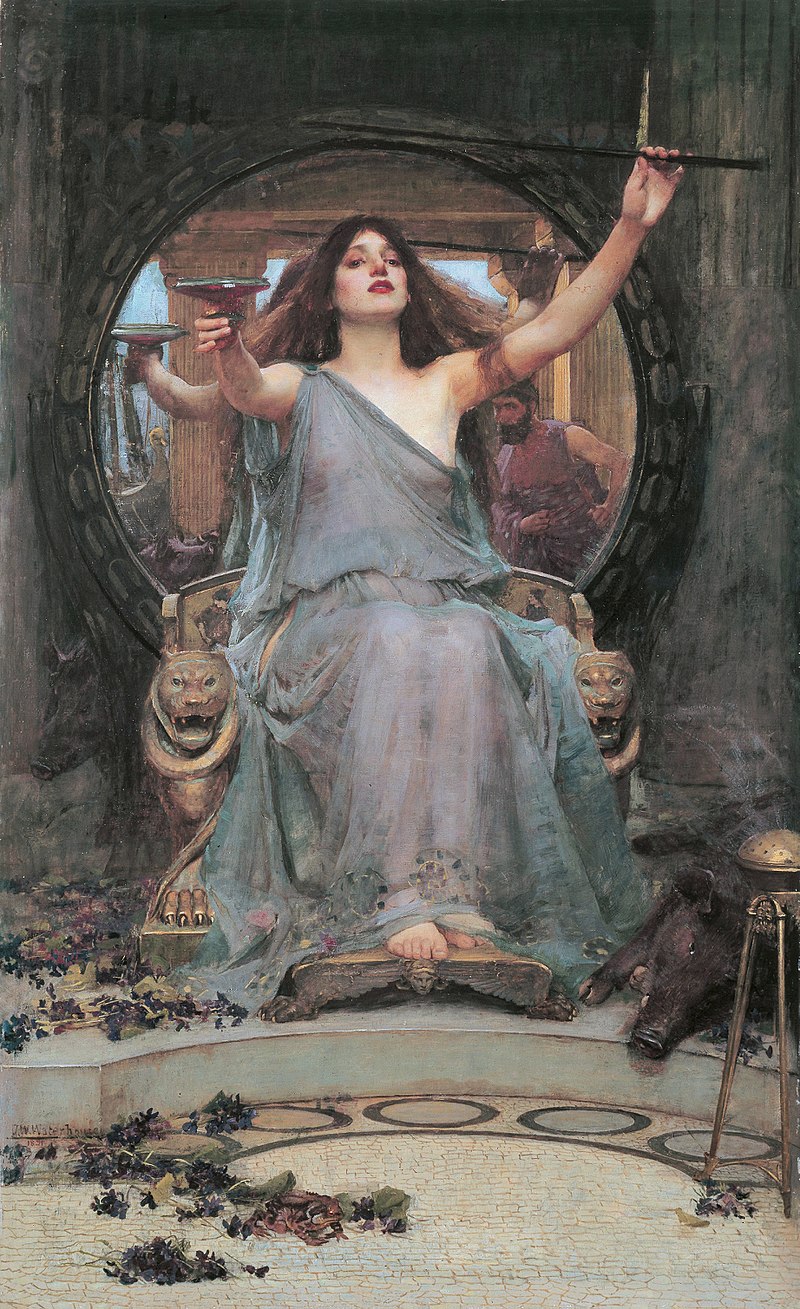
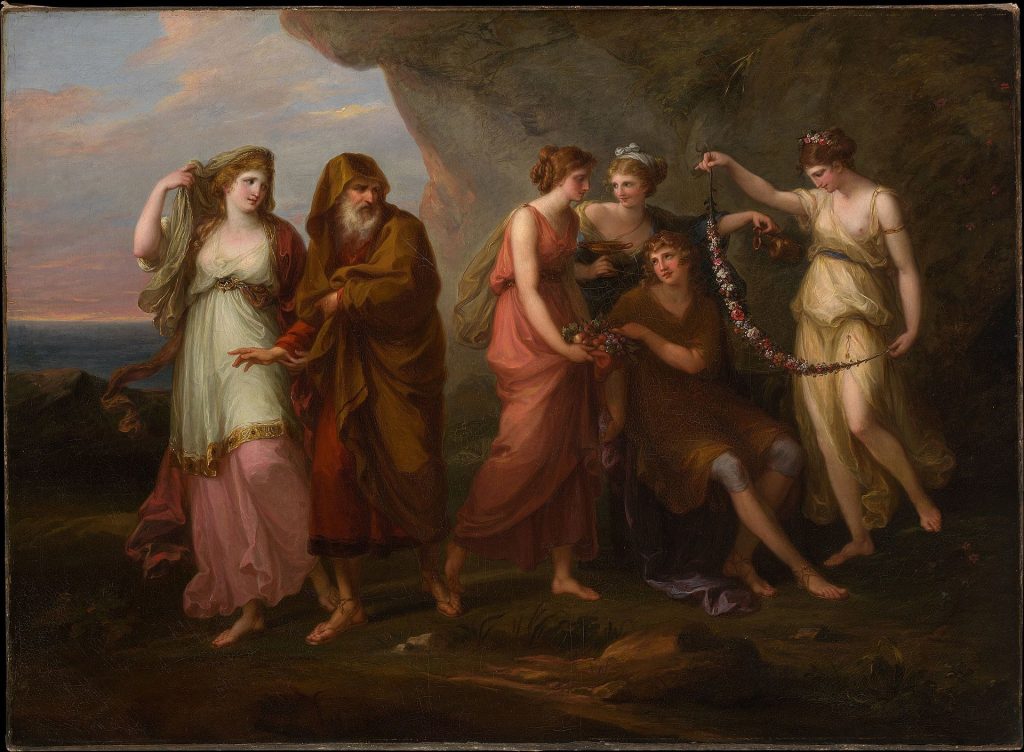








No comments
Trackbacks
Our apologies, you must be logged in to post a comment.